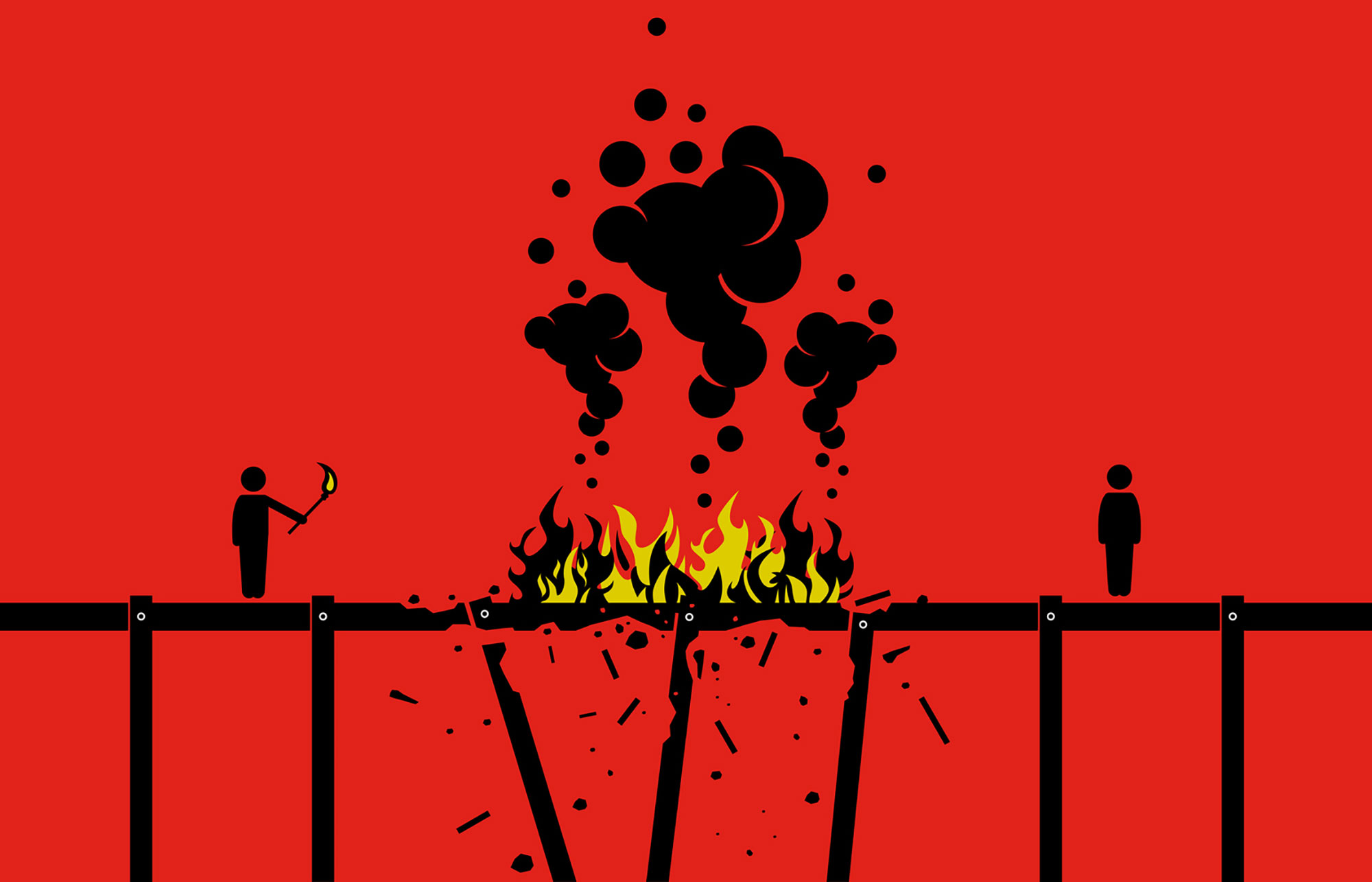Fear of Better Options (FOBO) — and How to Keep It Under Control

One of my best friends introduced me to Fear of Better Options — or FOBO — when we were having dinner in a fantastic Afghan restaurant in the 17eme arrondissement of Paris. Over mutton and red wine, we engaged in a ranting session about how challenging dating is these days with everything from questionable dating apps to flaky dates.
After we hysterically released our frustrations, finally, she summed up this disorder as a byproduct of the FOBO. Sipping her fourth glass of wine, she said: "I am telling you, they all have FOBO. They all think that they deserve a ten when they aren't even fives."
I laughed nervously as I could sense she was getting quite intoxicated. "What's FOBO?" I said.
The MacMillan dictionary describes FOBO as "the inability to choose between different things, all of which are acceptable."
The term was coined by Patrick McGinnis, the creator of FOMO, or Fear of Missing Out. When asked by the New York Times how the word first came to him, McGinnis responded: "FOBO, the sister term of FOMO, came out of my experience as a student at Harvard Business School. I noticed that my classmates and I were always optimizing. We hedged, lived in a world of maybes, and were paralyzed at the prospect of actually committing to something out of fear that we might be choosing something that wasn't the absolute perfect option."
In dating, FOBO is the belief that a better option is always around the corner and attainable. If only they wait a little longer, we will find a prettier, more intelligent, more successful partner.
While FOBO is usually used in dating and has been the subject of much research and many articles, it can apply to every aspect of our lives. The process usually involves painful overthinking and weighing options. It hinders our ability to make short and long-term decisions about the most mundane things, such as what to have for breakfast.
For example, the croissant might satisfy your hunger immediately and give you the cultural edge you crave, but the avocado toast will keep you full until lunch. It will even make for more aesthetically pleasing photos for Instagram. So you ponder the options until it's time for lunch and you haven't had anything for breakfast. It can also mean not committing to plans with friends for Friday night because a more exciting invitation may come your way. So you wait until the last minute to RSVP.
FOBO is often rooted in narcissism and privilege. Subjects believe they have what it takes to gain la crème de la crème and have access to many options. Owning a smartphone, for example, provides access to thousands of potential dates with a simple swipe. As a result, FOBO victims will go to great lengths to get what they consider themselves deserving of and often are inconsiderate of the feelings of those around them.
This behavior is the root cause of a new wave of ghosting that has become prevalent today. As described by Adam Popescu for the New York Times, ghosting is "when someone cuts off all communication without explanation — extends to all things, it seems." Dr. Gili Freeman, quoted in the same article, offers an interesting take on why people ghost that ties in nicely with FOBO. People who ghost fear that their partner is not "The One." Consequently, they put no effort into the relationship, which often results in them checking out with little notice.
The Impact of FOBO on Careers
Photo Credit: Getty Images
So how exactly does FOBO translate into careers? In a 2018 blog post, the famous career-building social media site LinkedIn explored the phenomenon related to work. They reported that 68 % of employees have admitted to experiencing FOBO when making decisions about their career prospects in different situations. These situations include "after being in the company for a long time," "when seeking work-life balance," "after receiving a job offer," "when negotiating a salary," or "after a major life-changing moment."
I have had my share of experiences when FOBO hindered the progression of my career. It began with believing I could always get more than I currently had. For me, FOBO was leaving an excellent job without a plan or another job offer to fall back on because I was hoping I could find better in no time.
Led by my ego, I handed a pompously typed resignation letter to my boss without previous warning. The letter was followed by a dramatic departure of the "toxic" workplace where all hell broke loose at the news of me, Océane, the best employee leaving the company to fend for itself. But, of course, nothing of the sort happened. According to the few coworkers, life went on as usual, and I was replaced within days.
At the time, I truly believed that I was destined for better elsewhere. The positions that I filled were merely a stepping stone to something better. I spent many hours looking for new opportunities instead of performing in my current one. In a way, I did do better as I got closer to that dream job. But in my path, I left remains of bridges that I burnt without an ounce of remorse. I went as far as to ghost my employers because, well, the "relationship" was going nowhere.
All this led to substantial consequences that could have caused more harm to my career. The biggest of them is missing out on recommendations from great managers whose good words could have changed my life. I also let down coworkers and connections that could be useful in my professional advancement. I lost valuable contact by jumping ship at the sight, or illusion, of a better opportunity. My career was stagnant. I was changing positions but never moving up the corporate ladder.
Fear of better options also increased my work anxiety while hindering my inability to make small and big decisions. From the format of my curriculum vitae to making tasks more time-consuming than they would need to be. My anxiety grew worse when faced with multi-decision projects imagining the worst if I picked the wrong option. As a result, I spent more time looking at each opportunity than necessary, weighing all the pros and cons, and playing out all possible scenarios. Needless to say, that I was not enjoying my workdays because of my overthinking.
How to beat FOBO?
I got better at FOBO and can confidently say that it has less of a grip over my life. I believe that the secret to unlearning damaging behavior is not much of a mystery. It boils down to self-awareness and willingness. When asked about the best practices to beat FOBO, Patrick McGinnis, who coined the term, said: "It's all about being decisive."
In my case, it was about recognizing patterns, learning my triggers, and purposefully acting against my habitual extinct.








